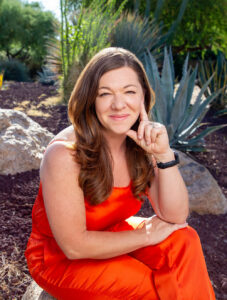Grief sucks. That’s as simple as it gets. Anyone who tells you that it’s beautiful or that they have the secret to overcoming it, that time heals, or that everything happens for a reason is full of it, albeit well-intentioned, but mostly full of it. Some things are just terrible and losing someone you love is one of those things, especially if it’s the first time it’s ever happened to you.
This article isn’t here to make you feel better. If you’ve just lost someone you love, there aren’t many things that will make you feel better right now. If this is your first loss, it may make you feel less alone though and that’s the best we can do on this forum. One of the many confusing and complex things about grief is that it’s something that almost every single one of us experiences at least once. Yet, it’s still unbelievably different for everyone, and can feel just as lonely when you’ve been plunged into its depths unarmed.
If you’re looking for advice, feel your feelings. Grief is powerful and is one of those parts of life that we have to just get through. The good news is, you will get through it. It’s going to hurt and it won’t be easy, but the more you understand about grief, the less confusing and isolating the process may feel. So, let’s talk about it. Let’s make talking about grief normal.
Grief Illiteracy in America
Our culture hasn’t done us any favors in preparing any of us for how to properly grieve. Until 2020, grief wasn’t something that people talked about much. In America, the death of a loved one is usually just an event for which we get 2-3 personal days off from work and then we go back and pretend everything is OK. Other cultures differ greatly in how they process death and grieving. In Tibet, funerals last for 49 days. Hindu families gather for a 13-day ritual where family and friends come together to support the immediate family. American mourners are some of the only in the world who are expected to “just get over it” and return to life as usual after losing a loved one. Thankfully, we’re finally beginning to see studies on how the Covid-19 pandemic has impacted our society’s views on grief. This is opening up a larger conversation that’s needed to happen for a long time.
Stages of Grief
As we’ve all learned together, we’ve realized that the five stages of grief are not linear – denial, anger, bargaining, depression, and acceptance can each come and go at any time and once you’ve been through one doesn’t mean you’re finished with that stage. The only real guarantee is that you will experience all of them, eventually. There are also other models to describe how we process grief. One has four stages, numbing, searching, despair, and reorganization. It relates to the Attachment Theory. Another consists of only two processes, loss and restoration. Still, during the Covid-19 Pandemic, the talk of grief turned toward the concepts of Collective Grief and Re-Greif.
Collective Grief and Re-Grief
Collective Grief is exactly what it sounds like. When we experience massive loss as a society, like that of a global pandemic, a mass shooting, a plane crash, a weather event, or any time multiple people lose their lives, this means exponentially more people lost their loved ones. We enter into collective grief. While there is some comfort in mourning with others, each person’s individual grief is still unique. If ever there were a time for the use of the term unprecedented, this is it. In 2020, we experienced unprecedented collective grief and continue to, to this day. In this case, there have been other types of loss that we’ve grieved for collectively, too – loss of identity, loss of faith, loss of jobs, loss of relationships, etc… Grieving for so many things at once shouldn’t go without mention.

Re-grief is best described using the “ball of grief” analogy. This is particularly helpful for those who are at the beginning of their grief journey. The concept is that when we lose someone, we never truly get over that loss. Stick with me, it’s not as bad as it sounds. We carry the grief with us for the rest of our lives, like a ball. Imagine your grief as a tennis ball. It always stays the same size. The thing that changes is you. When you’re at the beginning of your grief journey, your capacity to carry that ball of grief is nearly non-existent. This is why it’s so painful. You’re like a toddler trying to lift a car. It’s heavy. It hurts. It can feel impossible. But as time goes on, the ball stays the same size, but your capacity to carry it grows and grows. That doesn’t mean it’ll never hurt again, it just means that it stays with you and that the pain and struggle becomes a little easier.
Types of Grief
In addition to the models for overcoming grief, there are different types of grief, acute and complicated grief. Both are natural responses to losing a loved one and can be effectively managed with grief counseling.
Acute grief is what we would describe as typical after the loss of someone important. While there is no right or wrong way to grieve and no one should set a time limit on your mourning, acute grief typically lasts for several weeks or months but does eventually begin to subside with the passage of time. Those experiencing acute grief will move through the stages of grief in their own unique order. They may also experience physical symptoms. We’ve heard personal accounts of insomnia, loss of appetite, nausea, brain fog, memory loss, and even chest pains (known as “broken heart syndrome”). This is all normal. You are not alone and you are not being a baby! Of course, if you do feel like you may be experiencing symptoms of a heart attack, seek emergency assistance immediately.
Complicated grief is a bit more intense. It persists longer than a few months. That ball of grief we talked about earlier doesn’t become easier to carry over time. The symptoms that may be experienced during complicated grief are obsessive thoughts about the deceased person or event, difficulty accepting reality, avoidance behaviors, or extreme preoccupation with reminders related to the loss. Complicated grief, also known as persistent complex bereavement disorder, is a mental health issue that can affect anyone who has lost someone. It fits into a class of adjustment disorders and depression that requires similar treatment to these types of mental health illnesses.
Grief Counseling
If this is your first time losing someone you care about, life can feel overwhelming for a bit. You may feel out of control, confused, angry, sad, or even relieved. You may feel all of these at the same time or when you least expect it. Even if the death of your loved one was expected, perhaps after they had been sick for a long time, it doesn’t make the loss easier. Grieving is a process we must all experience when we love others. The good news is, we don’t have to experience it alone. MUV Counseling aims to provide support and guidance through this terrible time in your life. We’re here to help you begin your healing process, without judgment and with compassion.
We’ve helped many grow their capacity to carry their ball of grief and would love to help you, too. Give us a call today to set up a free consultation for grief counseling in Scottsdale. We also offer group grief counseling and walk + talk group therapy for grief. We’re here for.



